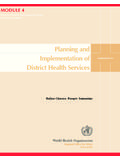Transcription of The Methodology for Strategic Plan Implementation
1 Vol. 10, April 2012 248 The Methodology for Strategic plan Implementation J. Rojas-Arce*1, O. Gelman2, J. Su rez-Rocha3 1,3 Departamento de Ingenier a de Sistemas, Posgrado de Ingenier a, Universidad Nacional Aut noma de M xico, Circuito Escolar s/n, Ciudad Universitaria, Coyoac n, CP 04510, Mexico City, Mexico, CP 04510 2 Grupo de Sistemas de Soporte Inform tico en Organizaciones, Departamento de Tecnolog as de la Informaci n, Centro de Ciencias Aplicadas y Desarrollo Tecnol gico, Universidad Nacional Aut noma de M xico Circuito Exterior, Ciudad Universitaria, Coyoac n, CP 04510, M xico City, ABSTRACT The objective of this paper is to propose the Methodology for the Implementation of Strategic plans in organizations through the prevention and, in its case, the definition and solution of the problems that frequently affect the Implementation processes with many negative manifestations and harmful consequences.
2 By elaborating the concept of Implementation under the systems approach and cybernetic paradigm, two types of these problems have been identified: the organizational and the functional ones. The consequent analysis of each kind of them has permitted the development of a Methodology for their prevention, identification and solution to assure an effective and efficient Implementation process. This Methodology consists in realizing five subsequent procedures, which were validated with positive results obtained through their virtual application to the different cases of manifestations with the negative consequences that had occurred during Strategic plans implementations described in literature. Keywords: Implementation of Strategic plans, systems approach, cybernetic paradigm, planning process, management process.
3 RESUMEN El objetivo de este art culo es proponer la metodolog a para la implementaci n de planes estrat gicos en organizaciones, a trav s de la prevenci n y, en su caso, de la definici n y soluci n de los problemas que afectan frecuentemente los procesos de implementaci n con muchas manifestaciones y nocivas consecuencias. Dos tipos de estos problemas, organizacionales y funcionales, han sido identificados a trav s de la elaboraci n del concepto de implementaci n bajo el enfoque sist mico y paradigma cibern tico. El consecuente an lisis de cada uno de ellos ha permitido desarrollar una metodolog a para su prevenci n, identificaci n y soluci n con el fin de asegurar el eficaz y eficiente proceso de la implementaci n. Esta metodolog a consiste en la realizaci n de cinco procedimientos consecuenciales que fueron validados con resultados positivos obtenidos a trav s de su aplicaci n virtual a los diferentes casos de manifestaciones con sus consecuencias negativas ocurridas durante implementaciones de planes estrat gicos descritos en la bibliograf a.
4 1. Introduction The Implementation of a Strategic plan consists in carrying out one or more strategies established in the plan [1]. Depending on the purposes of the plan and time horizons, a Strategic plan is implemented through the realization of tactical and operational plans [2, 3], which include programs, projects and actions sequences. But frequently during the Implementation process, certain (sometimes, very serious) problems occur that do not permit to obtain the planned results in projected time, resulting as well in overrunning of the assigned resources and/or what is worst, in spite of all efforts and expenses, in not achieving the planed objectives. Usually the problems are not presented directly, but their existence could be observed through the manifestations and the negative consequences which they cause.
5 The literature is full of The Methodology for Strategic plan Implementation , J. Rojas Arce et al. / 248 261 Journal of Applied Research and Technology249descriptions of these manifestations and cases in which the Strategic plan does not contain the specific activities that are indispensable for its Implementation [4], or in which the coordination of these activities is not effective enough to achieve the planned results [4,5]. Moreover, there are described cases in which, during the plan Implementation , there is the need to improvise actions [6], because these actions had not been foreseen and, besides, the necessity of their execution had not been defined and/or scheduled. According to the authors opinions, that occurs when the plan is conceived as a purely political instrument or when its execution is considered as a post- Strategic process with other requirements [7, 8].
6 In other cases, some difficulties are presented in making adjustments during the Implementation due to insufficient flexibility of the plan [9] that had not foreseen the possible changes that produce new problems [10]. Moreover, in many occasions the plan is considered as the main or single product of the planning process, completely ready for its Implementation . Thus, it does not foresee the design and the subsequent establishment of a unit responsible for its Implementation [2], capable of making decisions for addressing the unanticipated problems [4, 5] as well as to assure the participation of the indispensable and qualified personnel in the Implementation process, instead of the traditional involvement of all staff, reducing thus substantially the costs that the Implementation generates [3, 11].
7 Also, there are external factors affecting the execution of a plan such as changes in the political, economic and social environment [5, 6]. Many times, these factors deviate the priorities in the execution of projects and resources allocation [12], which leads to cases in which only 24 percent of institutions, on average, have begun the Implementation more than two years after the plan was formulated [13], and of this amount, only 28 percent have achieved their goals in time and in accordance with the budget, 18 percent of the plans have been canceled and the other 54 percent have exceeded their time and budget projections [3, 14]. This situation does not improve even if there is a staff responsible for the Implementation of the plan , because frequently their capabilities are not sufficient to perform the necessary activities [5, 8] due to their inadequate training [4].
8 Additionally, when these capabilities are sufficient, the personnel frequently lose interest [7] due to a traditional consideration of the Implementation as a process less glamorous than the plan formulation. Also, very often there are displays of dislike from the personnel involved in the Implementation , resulting in comments that the plan will not work based on their bad past experiences [15], due to the mandatory nature of the process, especially when it does not permit to consider their proposals or interests. All of this causes low level of participation and absences in meetings dedicated to reporting and assessing progress, as well as the lack of collaboration and communication between the organization s departments [5, 11].
9 Moreover, this situation is aggravated by the absence of formal communication among the personnel responsible for the Implementation [16] that results in duplicated efforts [13], with consequent increases in costs and waste of resources [17] which altogether causes achievements and performance to be below the expected level and only 20 percent of the objectives of a plan to be achieved on average [11]. Finally, inadequate management and leadership by managers responsible for the Implementation [4, 16] and insufficient administrative support of top management [17] cause many well-formulated strategies not to be implemented properly [7]. According to [18], to resolve this kind of manifestations, which in this case affect the process of Implementation of Strategic plans, it is essential to define and solve the problems that cause them by the conceptualization of the involved systems and the analysis of the relations among them, their subsystems and components.
10 Therefore, the next chapter is dedicated to the determination of the system responsible for the Implementation process, which according to the systems approach [19], in this case means to define the concept of Implementation . The Methodology for Strategic plan Implementation , J. Rojas Arce et al. / 248 261 Vol. 10, April 2012 250 2. Definition of the concept of Implementation The conceptualization of Implementation as a system was obtained by using the functional decomposition procedure of the system construction method [20] based on the systems approach which permits to consider the Implementation as a component of the management system and of the planning subsystem, respectively [21], that is described in the next subchapter ( ). Consequently, to complete the conceptualization process, the corresponding Implementation control and Implementation execution subsystems of the Implementation system are defined and described in the subsequent Subchapters and ; next, the existing information and execution relationships are identified and characterized in Subchapter Conceptualization of Implementation as a system According to [22], the management process could be considered as a system which manages the production system and consists of the following four subsystems: planning, which provides policies, strategies and action programs in the short, medium and long term.
















